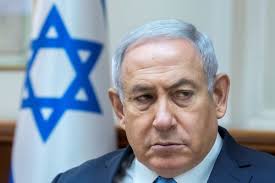Internal crises in Israel are escalating after Hamas rejected the ceasefire proposal.

The Israeli scene witnessed a sharp escalation in criticisms directed towards the government, especially towards Prime Minister Benjamin Netanyahu, following Hamas' rejection of the Israeli proposal for a ceasefire and prisoner exchange, which was presented through regional and international mediators.
The rejection sparked a wave of anger among the families of Israeli detainees in Gaza, amid increasing accusations against Netanyahu of prioritizing his political survival over civilian lives.
Accusations against Netanyahu: "Sacrificing detainees to save his coalition"
Opposition and detainee families led the Israeli scene, accusing Netanyahu of obstructing a comprehensive deal to release all detainees, fearing that halting the war would lead to the collapse of the government coalition.
On the other hand, ministers from far-right parties rushed to demand an escalation of the attack on Gaza, with Finance Minister Bezalel Smotrich writing on "X": "We will not surrender to Hamas... It's time to open the gates of hell and achieve complete victory."
Meanwhile, Minister of Internal Security Amir Ben Gvir threatened to "continue fighting until Hamas kneels," ruling out any agreement or truce.
Government division and conflicting statements
Despite the government's official silence on Hamas leader Khalil al-Hayya's statements rejecting the Israeli proposal, political and military sources released conflicting statements through local media.
While an official told i24NEWS that "negotiations are ongoing and military pressure will escalate," emphasizing that any agreement must end the military and political presence of Hamas.
On the other hand, Channel 12 quoted a security source saying that Palestinian rejection would be met with a comprehensive military operation, while Haaretz mentioned that Israel "will not stop the war without destroying Hamas."
Details of the rejected proposal and the government's crisis of confidence
Media leaks revealed that the Israeli proposal included a temporary 45-day ceasefire, gradual release of detainees in exchange for freeing Palestinian prisoners, redeployment of Israeli forces in Gaza, and increased humanitarian aid. However, the clause regarding disarming Hamas and deporting its leaders sparked widespread anger among detainee families, accusing the government of "deception" and not seeking to liberate all their sons.
In this context, the "Life - Families for Prisoners' Rescue" forum attacked the Israeli negotiating team led by Minister Ron Dermer, demanding his resignation if no progress is made.
Detainee families expressed despair, with Avinatan Ohr's mother saying: "We left the meeting with Dermer exhausted and desperate... the proposal does not guarantee the return of our sons."
War between military escalation and popular pressure
Israel faces a dilemma between escalating the attack on Gaza, as demanded by the far-right, and popular pressure calling for a "deal now."
With increasing internal divisions and military momentum waning, Netanyahu seems to face a tough test: either achieve an impossible military victory or confront a political storm that could topple his government.
Amid Hamas' recent rejection, observers speculate that Israel will resort to field escalation, but with risks of exacerbating the